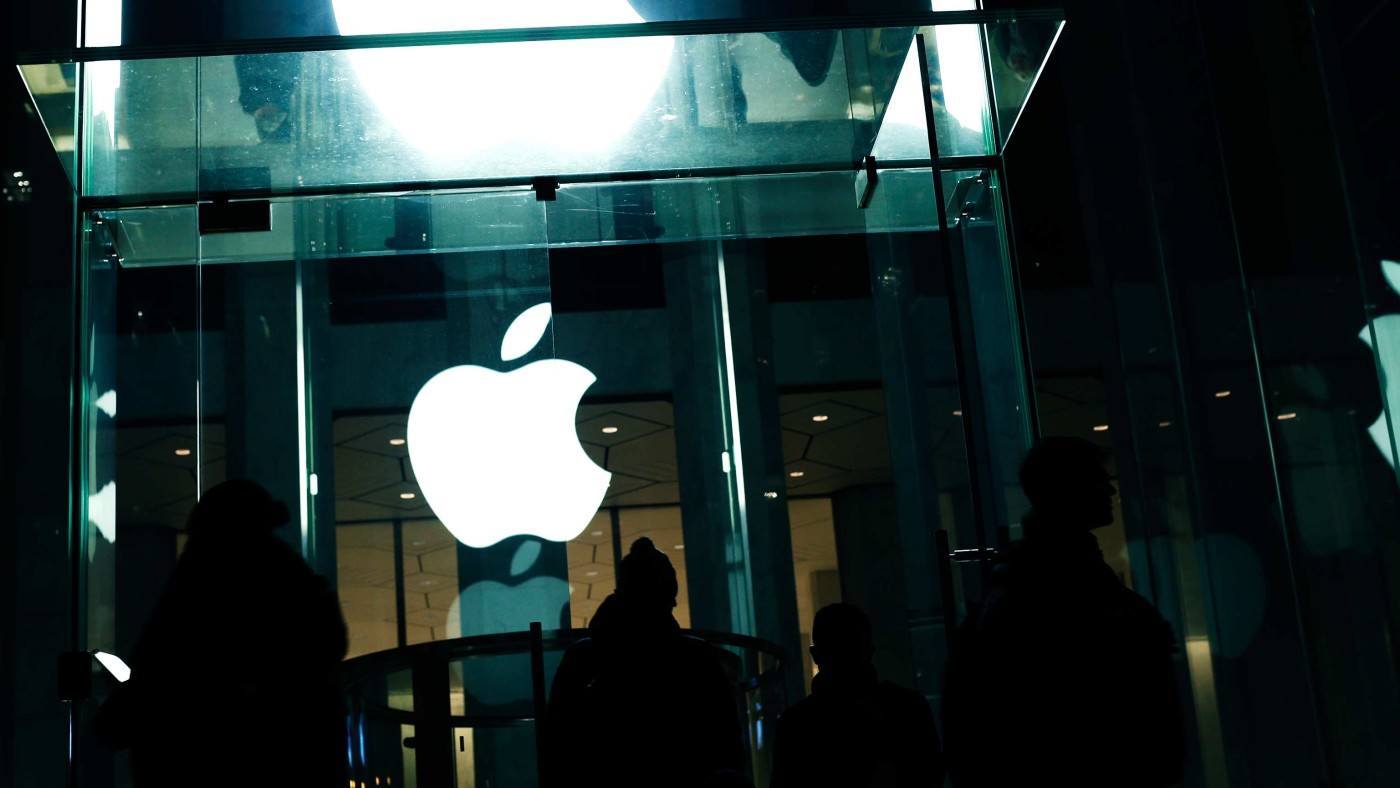Be honest, you want to be on team Apple. There are the stores and all the products. In those terrific TV advertisements pitting Apple vs. PC, people identified with Apple, no contest. Same for choosing a side between Apple and Microsoft. Apple is synonymous with cool, new, beautiful, and fun. But which side do you choose when it is Apple vs. the government? The battle lines have thoroughly shifted, and suddenly Apple finds itself on the wrong side of the country’s fight against murdering Islamic terrorists. The American public, says a new Pew poll is siding with the government.
“As a general matter of strategic communications,” Brookings Institution scholars Susan Hennessey and Benjamin Wittes advised Apple, “following the words ‘We have no sympathy for terrorists’ with a ‘But’ generally means you’ve gone badly off message—even if you wedge a few sentences in between.”
Apple missteps are nearly as bad when it comes to the company’s legal position, which has been criticized from the right, the left and the libertarian.
Hennessey and Wittes argue that Apple made the problem by encrypting the phones without a backdoor. Wired magazine did a good job of explaining this point. Moreover, there’s no mistaking the importance of the case, the scholars argue. “This is,” they say,
A law enforcement and intelligence interest of the highest order: involving knowing for criminal justice purposes who may have been involved in an attack that took place within the United States and for prospective purposes who may be planning other such attacks. The case illustrates how the investigation of crimes is often linked to crime prevention. The phone is actually owned by the shooter’s employer, which has consented to the search. And there’s a warrant too. So there’s no legal issue with FBI access to the data whatsoever.
Cornell Law professor Michael C. Dorf discussed the legal merits of Apple’s defense at SCOTUSblog, setting up his argument as a simple question:
Apple argues that Congress has not legislated a requirement that makers of phones, computers, and other electronic devices that use encryption build in a “back door” that allows the government to circumvent encryption. Under the circumstances, Apple contends, reliance on the All Writs Act (part of the Judiciary Act of 1789) is an overreach. Is that right?
The short answer is no.
Libertarian legal eagle Richard Epstein whacks Apple for overstating its case. At Defining Ideas, he complained:
What is truly unprecedented is that any company would seek to defy the government when the stakes are so high. Right now, Apple is worried that assisting the government will tarnish its brand. Cook may well be wrong. The better strategy might be to insist on the narrowness of the order, thereby avoiding the current soap opera. But [Apple CEO Tim] Cook seems intent on turning the case into a heroic struggle.
Note that Epstein is on the side of privacy and ensuring that government warrants are as narrow as possible so that privacy isn’t compromised. As Epstein explains however, this case isn’t about privacy at all. As he shows, referencing the message to customers Apple published on February 16,
Cook gave away the privacy game when he noted that Apple had cooperated with the government by turning over all data pursuant to a valid search warrant. The difficulty here is that the information that was sought from [Syed Rizwan] Farook’s iPhone had not been backed up, so that the government could not conduct a simple search on its own to get it. Instead, it had to attack the encryption systems built into the phone itself.
He hasn’t endorsed the government’s position, but Microsoft founder Bill Gates definitely seems to be giving the FBI’s position due consideration. “This is a specific case where the government is asking for access to information. They are not asking for some general thing, they are asking for a particular case,” Gates said. Most others in the technology field are siding with Apple.
For FBI Director James Comey the case is about “the victims and justice” not “sending a message.” He explained in a letter to the Lawfare blog on February 21,
The relief we seek is limited …We simply want the chance, with a search warrant, to try to guess the terrorist’s passcode without the phone essentially self-destructing and without it taking a decade to guess correctly. That’s it. We don’t want to break anyone’s encryption or set a master key loose on the land…. Maybe the phone holds the clue to finding more terrorists. Maybe it doesn’t. But we can’t look the survivors in the eye, or ourselves in the mirror, if we don’t follow this lead.
So now, once again: Who is on team Apple?


